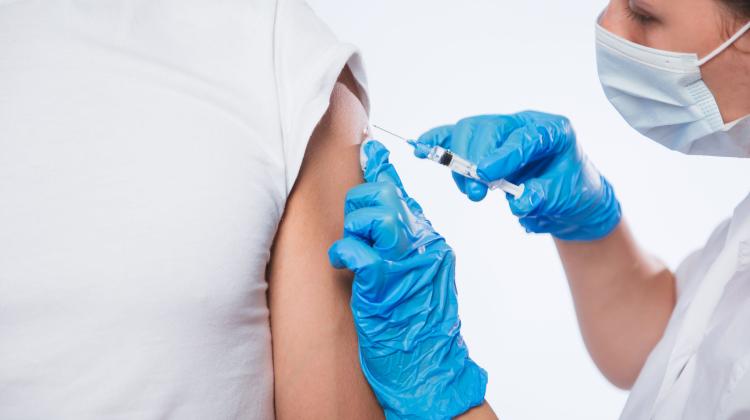Poles more afraid of coronavirus vaccine than coronavirus infection, shows survey
 Credit: Adobe Stock
Credit: Adobe Stock
Poles are more likely to fear a coronavirus vaccine than contracting the virus itself, according to a new survey in December.
The report 'Attitudes of Poles towards Coronavirus Vaccination’ from the Market Research Company Kantar shows that less than a third of respondents trust the government's plan regarding the use of vaccines against the coronavirus.
The survey also revealed that 47 percent of respondents are more afraid of complications after vaccination, while 26 percent Poles are more afraid of the disease itself. A further 27 percent of respondents could not say whether they were more afraid of the disease or the vaccine.
The study also shows that women as well as the youngest (15-19 years) and the oldest (50 years and more) respondents are among those more often worried about coronavirus infections.
In the survey, respondents were also asked about their confidence in the government regarding the use of vaccines against the coronavirus. Less than a third of Poles (30%) trust the Polish government on this matter. Only 3 percent of respondents definitely trust the decisions of the government, while 27 percent are inclined to trust those decisions.
More than half of the respondents (55%) do not approve of the idea and are unable to trust the government. The poll shows that every fifth Pole definitely does not trust the government, while every third is inclined to respond negatively.
The greatest confidence in the government's decisions regarding vaccines was recorded among the elderly, with primary and vocational education, and among Law and Justice voters. Lack of trust was expressed primarily by people under 50, people with higher education and supporters of the Civic Coalition and the Polska 2050 Movement.
The survey was carried out on 4-9 December on a representative sample of 1,015 Polish residents aged 18 and over, using the method of computer-assisted direct interviews (CAPI).
PAP - Science in Poland, Szymon Zdziebłowski
szz/ mhr/ kap/
tr. RL
Przed dodaniem komentarza prosimy o zapoznanie z Regulaminem forum serwisu Nauka w Polsce.


















